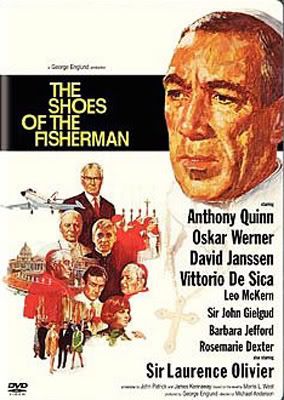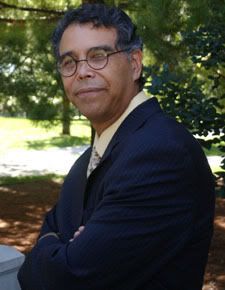
I put up a blog spot about Lourdes Miracles way over a year ago. About a year ago I put up one on "why wont God heal Stupidity?" Answering the amputee thing. I still get comments on both of those posts. The former has been up closer to two or three years. The whole blog has only been going since summer of 2005! These comments almost always say the same thing: "why aren't there aren't there any prosthetic devices at Lourdes. One guy said "why aren't there any toupees at Lourdes." I guess he's in the no healing is too frivolous faction. Well, maybe God expects you to buy minoxidil! Recently I came across a post on Yuku on the board of an atheist who sometimes used to post on my boards, she says saying "Old Metacrock is always asking for money for his legs, but why wont God heal them?" O wow! (slaps forehead) why didn't I think of that?!!
Of course I've thought of that! I've pondered it many times. Why would anyone think I would have an answer? The problem with asking such a question is it reminds me of the book of Job. We, like Job's friends, expect to come up with a nice little foumulamatic answer that makes sense to us. The message of Job is that we can't know God's ultimate reasons for doing things. The wager with satan in the book is nothing more than a plot device.It's a place holder because for the author to give the reason reason God would have to reveal to him what he doesn't ant us to know, and that's the whole point of the message anyway. God has this wager with satan about how Job will stay loyal. He couldn't possibly know that. His friends could not know it, rather they assume he sinned or something like that.I do not believe that God punishes people for sin by not healing them. There are verses that imply this, but that's different. That applies to some gross sin like sleeping with your step mother, and it applies to the elder of the church praying for you. I don't believe that everyone who is sick has sinned. People get sick, it's part of living in a real world. To ask why God wont heal my legs in particular is malicious and implies that there is something particular problem with me. Of course what she is saying is either I should be healed for stop talking about God because there isn't' one and if there was I would be healed.
That's the whole point of the whole point of the amputee thing. Atheists trying to find some king's x, a fail safe they can trot out and always silence any Christian who tries o argue for the existence of God, because clearly there can't be a God because if there was there would be no sick people. If God worked miracles, in the atheist play book that is equal to "if there was a God" then God would make everything perfect and no one would have any problems. The amputee sight treats it as though God is a genie who has to give us anything we want on demand. Make me a chocolate soda God! No chocolate soda, therefore, no God! He does this by insisting that the verses about moving mountains an "whatsoever you ask in my name believing" as literally as possible.For that Guy God is just a big chocolate milk dispenser. Another assumption a lot of atheists make is that God's motive for healing is to deal with all the pain as an alternative to medicine. That's why they think it's such a powerful argument, because obviously God is not coping well with pain in the world. they expect this to be such a sure fire answer there can't be an answer to it so they don't' even bother to read my answers. That' why they send the same stupid comments over and over even though I answered them in the article.
I answered these arguments, I answered them well and decisively in my article on "why wont God heal Stupidity." I can only assume that a lot of atheists didn't read it. They just respond to the title rather than actually reading the answer. Essentially I have three basic answers to the whole healing question. I am going to give these answers and I expect people to read this and take them as answers. They can argue with them, but stop repeating the same simplistic stupid formula again and again as no answer has been given.
I. God does heal people, but he doesn't always heal them because healing requries certain guide lines; you have to be "in the zone."
II. The theory of Soteriolgoical drama explains it.
III. God created an evolutionary universe which requires evolutionary process to unfold and thus, disease, disaster and evil choices are required.
(I) what do I mean by "in the zone?" There are peramiters that have to be met for healing to take place. God's purpose in healing is not to eliminate all pain. The reason for that is seen in II and III. But when God does heal, and he does, it is for a specific reason. That means it has to fit the plan, timing has to be right, and faith has to be present. There are probably more variables that have to be right, but this is a basic run down. This is why you can't just say "OK God, restore my hair and give me a chocolate shake," and expect it to be done. What are the perameters determined by? Obviously, faith, timing, and God's will (part of the plan) must be paramount. Just because we don't know the specific plan doesn't mean there isn't one.
I don't necessarily agree with this website in every aspect, but here's a site called
"Divine Healing"
with an interesting list of peramiters, from the Bible.
This is what the Bible says you have to do if you are sick in Ecclesiastics 38 and James 5 (Ecclesiasticus or Sirach is a practical book, like Proverbs, but larger, 51 chapters, and it is usually not in the Protestant Bibles
1- Ecclesiasticus or Sirach 38:9-15:
9- My son, in thy sickness do not get impatient, but pray to the Lord, and he shall heal thee.
10- Turn away from sin and order thy hands aright, and cleanse thy heart from all offence.
11- Give a sweet sacrifice, and a memorial of fine flour, and make a fat offering, and then give place to the physician.
12- For the Lord created him: and let him not depart from thee, for his works are necessary.
13- For there is a time when thou must fall into their hands:
14- And they shall beseech the Lord, that he would prosper what they give for ease and remedy, for their conversation.
15- He that sinneth in the sight of his Maker, shall fall into the hands of the physician.
2- James 5:14-16:
14- Is any one of you sick? He should call the elders of the church to pray over him and anoint him with oil in the name of the Lord.
15- And the prayer offered in faith will make the sick person well; the Lord will raise him up. If he has sinned, he will be forgiven.
16- Therefore confess your sins to each other and pray for each other so that you may be healed. The prayer of a righteous man is powerful and effective.
(II) soteriological drama in a nutshell (but to really understand what I'm saying please read the link--come on don't lazy atheists, read the link). God created the world for one overall purpose: to make free moral agents who willingly choose the good. to willingly choose the good we have to internalize the values of the good. But we can't internalize values which we are forced to hold. If we knew for an absolute fact that God existed we would all pretend to care and resent God for not giving us a choice. Thus the world is constructed such that it's an evolutionary process and a real world with problems and dangers and we have to seek the truth by thinking and seeking God. If every time someone skinned his knee or started to lose his hair, or caught a cold God healed him miraculously it would be obvious God existed; no need to search for what is obvious.
(III) God is the foundation of all life and thus, the foundation of the evolutionary principle. We have a whole universe out there and it's not set up just for man alone. Its' an evolutionary matrix. It's not designed in the sense that every aspect is micromanaged. The evolutionary principle s foundational to life itself, and thus God allows the universe to evolve in a natural process because that is the essence of life. Thus its a real world, with weather systems that can spawn tornadoes and biology that can evolve diseases. Life is a totality, physical, mental (spiritual). That involves a value system. This is the difference in understanding God as an impersonal force set within a larger evolutionary system, vs seeing God as the foundation of life and motive force which encompasses the whole system and moves beyond it. I will say more about this next time.
What all of this comes to is, God looks at life differently than we do. It doesn't mean he doesn't care, but he is not a drinks dispenser. God looks at things in ways we cannot comprehend. He made a universe that involves pain and just because his intervention into the process is selective it doesn't' mean it's non existent. We should not expect God to micromanage every leaf. God is on the scale of the laws of psychics, in fact the laws of physics are just an idea in God's mind, as is reality itself. The world opp orates largely through autonomous principles in which God interacts at levels we can't comprehend. What all of this means is we have to stop treating God like a big man and start thinking about our place in the universe in a more complex fashion.
the thing about the atheist failsafe, the amputee argument, is that it's really circular reasoning. It's also an admission of the power of the anthropic argument. Circular because it's premise assumes the answers to God arguments already in place then passes itself off as the answer to God arguments. If we know that God exists anyway then what does it matter if he doesn't always heal? That just means we have to ask why? It does not argue for no God. I know God exists for reasons other than healing, so if God doesn't' heal that doesn't mean there's no God. But atheists want to act like it does because they assume the God's arguments don't work but when push comes to shove this is the sort of they assume answers God arguments to begin with. Notice also that it assumes that we can reason form the state of the world to the non existence of God. But the basis upon which they reject arguments such as design and cosmological are that we can't reason form the state the world to the existence of God.
I that God can work miracles, and there's a lot of good evidence to that effect. I myself have seen miracles. I once made a lit I think it had 18. I will just go over some of the major ones:
(1) the basic experince that got my attention and led to my born again experience.
My brother was writhing around on the floor in some sort of strange break down, screaming. I couldn't get him to stop. I was desperate and didn't know what to do so i said, praying to Jesus "If you are really there please make him stop," and he stopped in about thirty seconds.
I would like to count the born agaian experince and the baptism of the Holy Spirit. I wouldn't call them miracles per se, but they were dramatic enough to reinforce my belief in that early stage.
(2) Paying rent in New Mexico
When I lived in New Mexico I wasn't doing so hot financially. I prayed for God's help as I could not make rent. I owed back rent already. I had not told anyone of these problems. Went to church and sat down, the woman in front of me turned around and haded me a check saying "God told me to give you this" and it was to the exact penny. It was exactly to the penny.
(3) My father's big heart attack
While he was in the hospital suffering from a heart attack that day he had a massive one and died. He was actually clinically dead for a period of maybe eleven minutes. They gave him a massive shock that brought him back. The doctor said "I have never used the word miracle in my practice before. But I am using it now, this was definitely a miracle." One of the most miraculous things about it was the way his heart came back strong and rhythmical after. For an 89 year old man to bound back so strong was amazing. But the real miracle was this: I was home at this tmie, it was around twelve midnight, Christmas eve. I watch the Pope's midnight mass, and prayed with him for my father's healing. Then I went to sleep and had a dream, in the dream my father came to me looking strong and in a new suit, he told me everything would be alright. that was the same time he was clinically dead and they brought him back.
(4) EMS guys and another Heart attack
my father had another heart attack, or something. It seemed he couldn't breath well and was having chest pains. The EMS guys came in, a scene we came to know well in those parental convolescent years.They hooked him up we went over, my mother, brother and I and prayed for him laying hands on him. Suddenly the EMS guy goes "wow, what's up!?" they all looked stunned and said "this is not right." The instrument readings all changed as we prayed. One of the EMS guys said "it's like we can see the heart attack reversing." They were all freaked out, as they left one told my brother, "this just shouldn't happen."
I have a whole life time of these kinds of experiences. I know other people who live this way every day. They have long lists of such stories or even more fantastic. I know that God is real and I know he heals. He doesn't heal every time, maybe not that often but he does heal. Maybe he doesn't heal amputees. Maybe there's an imposed limit for the rasosn above stated. Or maybe he does heal them. I don't know, but I do know is not a reason not to believe and it's not a big atheist failsafe.





